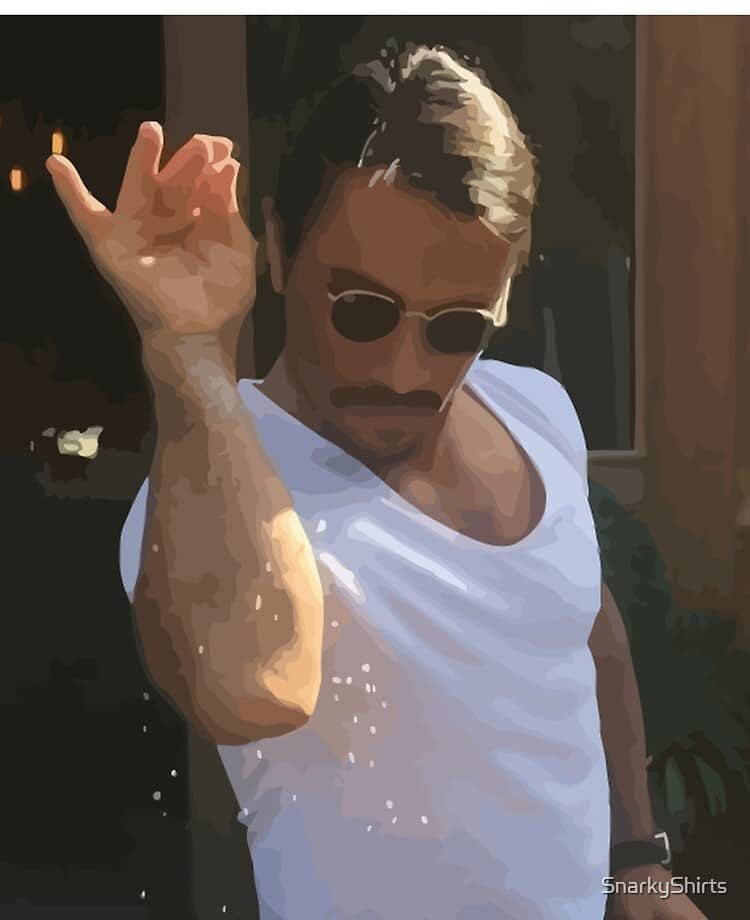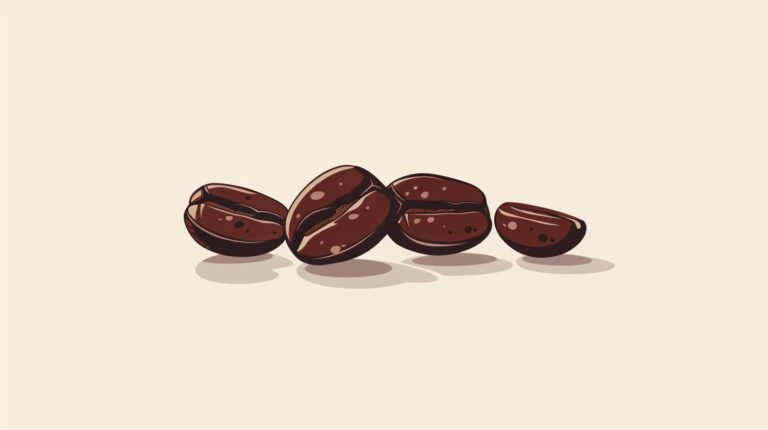Why Your Coffee Tastes Salty + How to Fix It

Alright, coffee lovers! We’re about to dive into the mystery of why your morning brew sometimes tastes like you accidentally poured it from the ocean.
Coffee can have a salty taste when it’s made with salty water, has had salt added to it, or is under extracted. An under extracted coffee, which may also taste sour, can be caused by not enough water being used during brewing, too coarse of a bean grind, or a broken coffee maker.
Let’s break it down:
- Salty water = Salty coffee (makes sense, right?)
- Someone’s adding salt when you’re not looking
- Under-extraction: When your coffee maker doesn’t quite do its job
That last one’s tricky. Under-extracted coffee is sour, weak, and generally disappointing. This can happen if:
- You’re not using enough water
- Your coffee grind is too coarse
- Your coffee maker’s not working properly
In this article I’ll walk you through in detail why the coffee your drinking is tastes salty, and what you can do to fix it. Let’s get started!


What Causes Coffee to Taste Salty
1. The Water Used to Make It
Every kind of coffee, from classic drip to pour over to espresso, is made mostly of water. In fact, drip coffee, the most common way to make coffee, is around 98.5% water and only 1.5% actual coffee beans.
Coffee is mostly water which means that the taste and quality of water used to make it has a big impact on its final taste. So if the coffee you’re drinking tastes salty, a possible explanation is that the water used to make it is salty.
What makes tap water taste salty? The compound sodium chloride (table salt) can get deposited in your water lines in larger amounts than normal from seawater intrusions or salt deposits in the ground.
If you live somewhere cold, salt used to get ice off the roads can even dissolve into the surface water and filter into the water supply.
And if you use a water softener to purify your water, sometimes it can malfunction and put too much sodium chloride into the tap, giving it a salty taste.
So if you notice that your coffee is tasting salty, taste test the water you’re using and see if it does too.
If the water you’re using to make the coffee isn’t salty, I’ve got two more possible explanations for you.
2. The Coffee is Under Extracted
The 2nd most common reason that coffee tastes salty is that it’s under-extracted.
Whether you use a drip coffee maker, pour-over, or espresso machine, other than the water quality the level of bean extraction is the biggest influence on a cup of coffee’s flavor.
What is extraction you ask? It’s basically how much of the coffee bean’s flavor is pulled out of it or dissolved when the hot water comes in contact with the ground coffee beans and flows into the coffee pot or mug.
A perfectly extracted cup of coffee will pull enough of the flavor from the coffee beans to create a sweet, ripe, acidic, and smooth cup of coffee.
If a coffee bean is over-extracted during brewing, the coffee will taste really bitter, dry, and bland.
And if a coffee bean is under-extracted, the coffee will taste sour, thin, watery, and salty.
You can simulate an under-extracted cup of coffee by brewing a pot like normal and filling up a glass with only the coffee that flows out during the 1st minute of brewing.
And you can simulate an over extracted cup of coffee by only collecting all the coffee that comes out of the coffee maker in its final minute of brewing.
If you notice that your coffee not only tastes salty but also sour and watery, it’s probably due to the coffee being underextracted.
So what are some of the factors that can create an under extracted and salty cup of coffee? And what can you do to fix them?
How to Fix an Under Extracted Cup of Coffee
Because a drip coffee machine is the most common type of coffee maker out there when talking about how to fix under extracted coffee that’s the coffee-making method I’ll be referencing.
But even if you use a pour-over or French press to make your coffee, the ways to avoid an under extracted brew still apply.
So if you’re using a regular drip coffee maker and you find your coffee salty, sour, and under extracted, there are 3 possible explanations.
1. Your Beans are Ground too Coarsely
The finer coffee beans are ground, the more surface area of coffee is available for the hot water to touch while brewing. And the more surfaces of coffee beans that the water touches, the more flavor it will extract from them.
So if you have been making under extracted coffee, the first adjustment I would make is to grind your beans a little finer. This will not only allow the beans to pack tighter in the paper filter, making the water take longer to soak through and allowing it more time to extract flavor, but it will also increase their surface area and create more extraction in that way as well.
2. You Don’t Use Enough Water
As I said a little earlier, if you want to simulate the taste of an underextracted cup of coffee, allow the first minute of your coffee brew to flow into a separate mug. This is because only a small part of the coffee beans have had time to be dissolved and absorbed by the water during the first minute of brewing.
If you’re not using enough water in your coffee maker, you’re pretty much doing the same thing. Your coffee maker is running out of water early and so it doesn’t have any to use during the later stages of brewing when most of the coffee bean is getting extracted. Leading to an under extracted coffee and salty taste.
The general rule for drip coffee is to use a 2:1 tablespoons of coffee to water ratio. So for every cup of coffee you want to make you should use 2 tablespoons of ground beans. This means that a full pot of coffee that is 12 cups will require around 24 tablespoons of coffee.
3. There’s a Coffee Maker Malfunction
The third and final thing that may be causing your coffee to become under extracted and salty is not a mistake on your part, but actually a malfunction of the coffee maker.
If your coffee maker is old, broken, or hasn’t been set up right and it’s either not heating its water hot enough or not brewing long enough, it’s probably going to make an under extracted coffee.
Water that’s not hot enough won’t dissolve enough of the necessary oils from the coffee grounds as it passes through them. And a brewer that doesn’t brew long enough won’t reach the later stages of the process when the beans are becoming more extracted and the coffee is reaching its peak flavor.
So if you’ve tried grinding your beans finer and using more water and are still finding a salty taste in your coffee, it may be because something inside your coffee maker isn’t working right.
3. Salt Has Been Added to the Coffee
If you make coffee yourself and find it tastes salty, it’s probably due to one of the two explanations above.
However, if the salty coffee you drink has been made by someone else, whether that’s a friend or a local cafe, its saltiness may actually be because someone literally added table salt to it.
Although it’s not super mainstream, adding a pinch of salt to a cup of coffee is a pretty common practice.
Proponents of salting coffee claim that a tiny bit of salt can be really effective at reducing the bitter and sour flavors in the coffee.
Final Thoughts
Although some people purposely add salt to their coffee to enhance its flavor, tasting salt in coffee when you’re not expecting it really sucks
Hopefully, whether you made the coffee yourself or got it from someone else this article could give you an explanation for why that coffee tasted salty, and gave you some solutions to prevent it from happening in the future.
As always if you’d like to learn more about coffee makers, espresso, and pretty much anything else coffee related be sure to check out the rest of my website! Have a great day!
